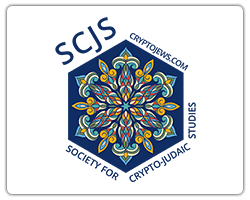Rufina Bernardetti Silva Mausenbaum from South Africa spoke at our conference Pueblo Colorado This article parallels her presentation there
Although I was baptized in the Catholic Church more than thirty years ago I converted to Orthodox Judaism the religion of my forefathers and often still experience some of the frustration humiliation and shame suffered by my family for centuries Many families in Portugal maintained traditions and Jewish practices throughout the ages some with no knowledge where it originated as with most of my family who are Catholic but retain many Jewish traditions that have been passed down without explanation
The Jews are believed to have been a part of the Iberian Peninsula for almost 3000 years having arrived there with the Phoenicians living and trading within organized communities Judaism flourished as the only monotheistic religion before giving birth to Christianity and later to Islam The pagans converted to Judaism readily as did the people of North Africa The influence of Jewish religion culture and language on the Mediterranean Basin was entrenched during the seven centuries 813 146 BCE of Carthaginian rule
Long after their defeat by the Romans the Carthaginian language continued as verified by Jewish Muslim and Christian historians An interesting theory is that Hebrew might well have become the language of the Mediterranean basin if the Romans had lost the war at Carthage!! As Max I Dimont so aptly expressed Jews God and History “the furniture in the western world is Grecian but the house in which western man dwells is Jewish”
Portugal is often described as having a rich and romantic past For me it is painful and tragic My own origins history and culture have been effectively obliterated and it is for me a continuing and haunting loss My grandmother whose name I bear was thought to be “odd” in the village where she found secrecy and anonymity “Odd” because once a year (on the Day of Atonement) she used to disappear for a whole day and night Her granddaughter my cousin who died recently was a devout Catholic but had requested a plain not decorated box and a “simple” burial There was to be no adornment no jewelry or rosary
A feeling of deja vu overcomes me whenever I visit Portugal remnants of the past remain of the period when Jews dominated life there Saturday is still called S?bado (Sabbath) and the rest of the days of the week a translation from the Hebrew except for Sunday being the first day of the week The word for Easter (Pasc?o ) remains the same for Pesach (Passover) A town outside Lisbon sells pastries packed in blue and white paper decorated with a Magen David In Madeira arts and crafts shops also feature this emblem This beautiful island knew fear and became a hiding place for many Jews Unlike places in Portugal the Madeiran Jews did not manage to sustain their religious identity Today they are devout Catholics as once they were devout Jews and the Jewish cemetery lies forgotten neglected and in ruin The irony is that the Jews as a people had been in Portugal (and Spain) long before those who expelled and persecuted them
The miracle of Portuguese Judaism continues especially in the community of Belmonte in the northeast Previously known as Crypto (secret) Jews they have recently in December 1996 rejoined mainstream Orthodox Judaism after 500 years of secrecy and fear Living and hiding in this charming town high in the Serra Estrella mountain of stars they managed with faith and perseverance to maintain their religion all this time As often stated they were Jews in all but name and Christian in nothing but form A prayer said by Crypto Jews on entering a church featured the secret words; “I come here to worship neither wood nor stone I come only to worship you Highest Lord who it is that governs”1
The mystery and tragedy of history continues: Portuguese babies often sport a dark gray or blue birthmark on the lower or upper back or leg These stains remain some months and often years before fading They are common in Misrachi and Sephardi Jews to this day and if seen on a Portuguese baby hint at a converso origin The marks are called Mongolian spots2 but are better labeled semitic or sacral marks and are often dismissed as “family” birthmarks
It is with pride that I remember my grandmother Rufina who in spite of the danger to her life managed to keep her faith How pleased she would have been had she known her humiliation had not been in vain That today many years later her granddaughter (Rufina) observes the “Antepura” (Yom Kippur) openly as a Jewess of Portuguese heritage
Often when listening to the Portuguese Fado (folk music) the haunting soulfulness reminds me of others like me struggling to make sense of the secrets from a forgotten past born out of a people who have almost disappeared and my saudades (nostalgic longing) for the past continues
1David A Canelo The Crypto Jews of Portugal 2nd Ed 1990
2Dr S Levin The SA Medical Journal 1989
Rufina Bernardetti Silva Mausenbaum hosts Saudades a listserve on Portuguese crypto Jews
Rufina and her colleagues organized a conference in Lisbon in June2002 It was in conjunction with the 100th anniversary of the Lisbon synagogue




